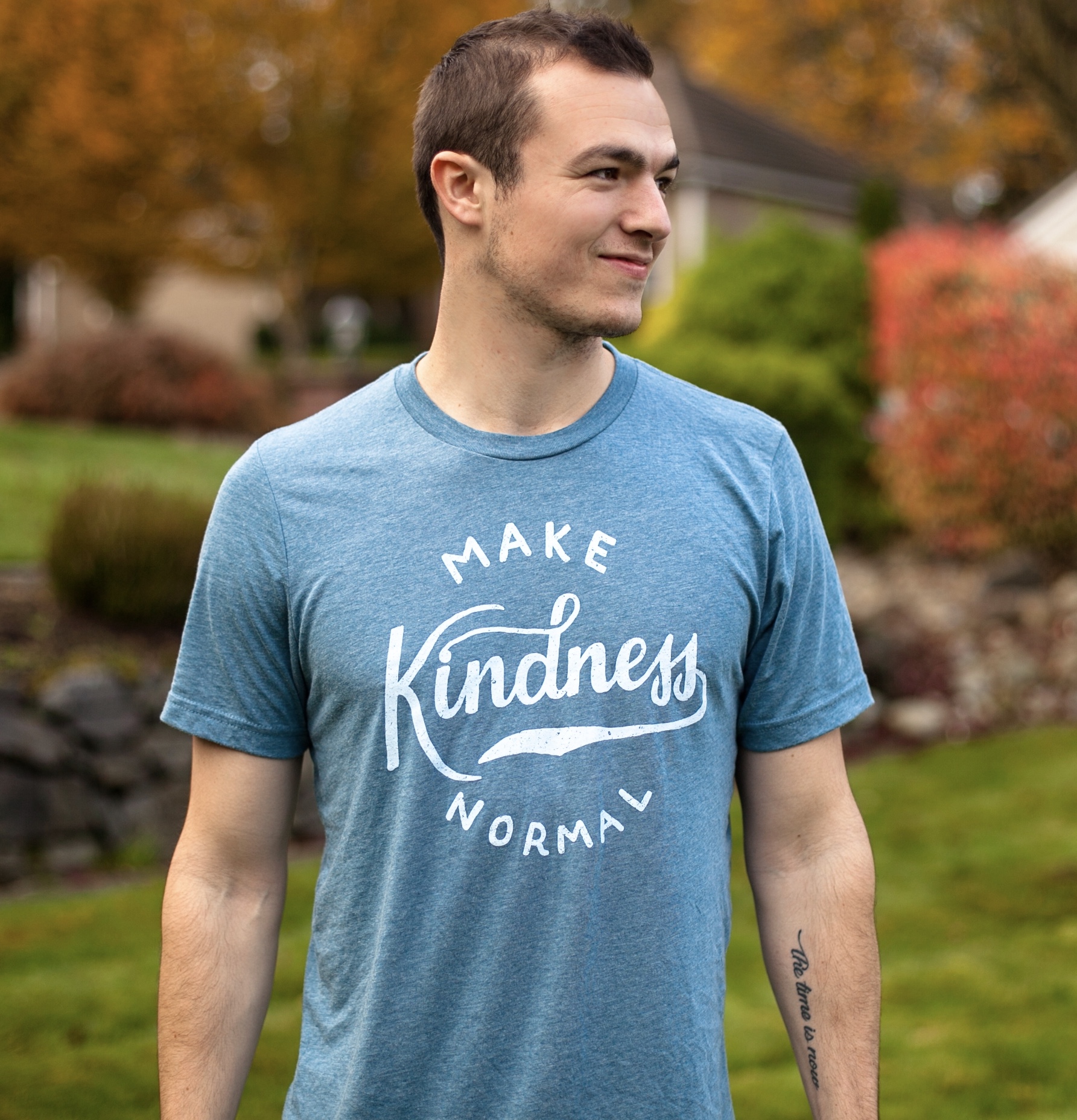Marketing is hardly the most heartwarming term known to humankind in the 21st century. But to digital marketing expert, Tyler Donahue, it’s become that and so much more.
However, this marketer’s journey to becoming one of digital marketing’s foremost experts been nothing short of ridiculously hard. Before his work with clients like Arizona State University, Mondelez International and Yes Theory, Donahue was a hustler.
For years—Donahue tells me as we sit down for our hour-long conversation—he was on the entrepreneur’s hamster wheel, trying on different industries for size; from real estate to agency consulting, attempting to fit the accomplishments and lifestyle of a high-achiever. It was an uphill battle with significant setbacks filled with massive client dropout and financial losses. At one point, Donahue even had to sell his own bodily fluids to pay his rent.
The one thing he most commonly felt? “Disconnected,” says Donahue. “I was just trying to close deals. I just kept using the word ‘deal’. Whatever it was, it was a deal. It was like, oh, I’m going to x and then I’m going to close x and then I’m going to pocket x so I can do something with it later. A very binary way of living.”
Donahue’s eyes are bright and intelligent-looking, moving quickly like a wise owl, taking everything in at once. He smiles as if remembering one of the good parts.
“It was on a trip to Thailand when my big breakthrough came.”
Donahue was invited on an impact trip with a storytelling and production organization called Ripple Effect.
“I had the realization that I could leave the hustle and not die. Nothing drastically changed in my life when I just said, f*** it, I’m going to take off to Thailand for two months. I completely dropped everything that I thought was keeping me alive, and it turns out I became more alive than ever.”
During his travels, Donahue became reconnected to himself and discovered his passion for helping others be connected to each other and to the things that bring them joy.
Not to be confused with the marketing of our parents’ generation, Donahue discovered that the new wave of modern digital marketing was a lifestyle of inviting consumers into a conversation; essentially connecting them to each other and to the products or services that bring them joy.
I ask him what makes digital marketing different from the old-school marketing methods. Donahue shakes his head as if to say, only everything.
“It’s not about blasting people,” he says. “I think good marketing is systematically bringing a product, idea or service to the right person. It’s about making connections. Finding an idea, finding the person that idea fits with and then connecting the minds between those things.”
Donahue believes that in the ever-changing world of marketing, techniques and tactics will change again and again, but one thing will always remain the same: connecting the right idea, product or service to the right person who can benefit from it.
In this way, Donahue asserts, marketers can be performing a great service for the world.
While many marketers explain their industry in complex terms, Donahue likes to keep it as simple as possible.
For him, it’s all about joy.
He asks himself, Is what I’m doing bringing someone joy or utility?
“You are bringing someone joy by connecting them with that product or service.”
There are plenty of things that digital marketers and DIY entrepreneurs are getting way wrong in this space, though, and Donahue doesn’t hesitate to spill out the list, stressing that the consequences of these mistakes are less engagement, low conversion rates and a lack of brand appeal.
Being an entrepreneur with a few hands in digital marketing pies myself, I’m on the edge of my seat. What are these mistakes, maestro, and how can we avoid them?
1. Relying Too Much on Your Intuition
I admit—this one takes me by surprise. Haven’t we all been taught to go “on our gut?” But according to Donahue, it’s intuition that causes some of the biggest mistakes in online marketing.
“Marketing consistently works in ways that I think won’t work. It blows my mind in terms of like strict numbers, like clicks or downloads. Or FYS. Adsets in terms of advertising or email campaigns, whatever. My intuition is often wrong when it comes to what is going to glean the most attention, and people relying on their own intuition for a marketing campaign instead of the data is one of the biggest mistakes I see, so I always try to keep my intuition out.”
He’s got a point. While intuition might be on-target when it comes to our personal interactions, how can we rely on it to be accurate with thousands (if not millions) of consumers’ brains?
2. Not Being Intentional Enough About the People You’re Selling To
Even though it seldom works, digital marketers often try to sell their product or service to people who don’t need or want it.
“It’s a lot harder,” Donahue says, “like trying to convince someone that they need what you’re offering, versus offering to the person who already wants it. If there’s a deep need for what you’re offering, [you’re] marketing to someone who already has that intention, who is already looking for the answer you’re providing.”
3. Selling Solutions Vs. Selling Guidelines
“There’s a company right now called Self Publishing School. They are exactly what they say—a school that facilitates you to self-publish your own book, fiction or nonfiction. They are very intentional about communicating that they provide that service. So if someone wants to write a book, they provide a service that helps them write and spread their message. They’re selling the guide to getting their book published. They don’t fill a solution. They don’t say, hey, sign with us. You’re going to be a bestselling author.”
Big difference. We all know what it feels like to read ads or watch videos with promises that seem crazy or unfulfillable.
The truth-telling of marketing-that-works is in promising that you can guide someone to their ideal, desired result. Not that you are guaranteeing your product, service or idea will actually work for them.
Donahue thinks a moment, then says, “Focus on how do I guide, not how do I sell?”
When I ask him about marketing trends, he’s got a well-prepared list, taken from his days spent in the digital trenches.
“Messenger and tech space campaigns are powerful because you can systematically speak with someone versus speaking at them.” Again, there’s the theme of and desire for connection. “I mean, I think we can be pretty negative about Facebook and Google having data about us, but it actually makes it easier for people to bring you products that you would actually like. I want Facebook to know stuff about me because I don’t want them showing me bullshit ads that I’m not gonna like.” These companies certainly aren’t staffed with dummies. They’re playing perfectly into the trends. “They’re actually making marketing better for us [by optimizing] for you because they know you and they’re going to show you stuff that’s going to make you laugh or cry.
Donahue says that email is missing this right now. “Facebook messaging and texts can fill the void by really customizing communication based off of how you’ve communicated with them in the past or answered their questions. For example,” he pauses, collecting his analogy, “If I signed up for Mike Zeller’s messenger service and you learned my answers to your survey questions, you could put me into a group of people who are driven by connection. So now you have a psychographic, not just a demographic. You know that I’m a male who is 25 years old who makes this much money a year, but that’s not all you know. Based on my behavior, you know that I’m driven by connection. So now, among the other five people who are in your optins, you know that I am in your best interest to invite me to join a small in-person group chat where we talk about whatever you’re offering to help me with my needs.”
Communication is showing up in this conversation as the most powerful conduit to connection. Donahue mentions how marketing has shifted into a two-way communication—a dialogue—with consumers, businesses and individuals. “When I think of influencers, for example, I think of this extension of the community side because what they are building is mini communities of people who connect with each other. So when I follow Mike Zeller and notice someone else really cool follows you, too, now we’re connected to each other. I don’t think influencers are bad—I think that it’s in its infancy—and what it is going to ultimately be is a way for us to build mini communities that coexist with other communities. I also think affiliate marketing has lots of room to grow and fit into the community economy.”
The community economy. Free market economists glorify its ability to weed out products or services that are not good, even though they might have a massive marketing budget, and make way for something amazing with a little budget. “It’s constantly being proven that things that are really good for us,” Donahue says, “will it be found regardless of their budget. If this person, group or cause believes in it enough and it’s good for the world, it’ll be found.”
There’s a difference between a following and influence, it seems, and it’s never been easier to see than now.
“One of my friends is the founder of Feat Socks. They ran a campaign with an influencer who had like 10 million followers on Instagram and only got a couple hundred dollars in sales because she didn’t have influence.”
And what creates influence? Donahue has less of a formulated answer. He gazes off thoughtfully. “I’m often surprised by things that have influence. They don’t necessarily have anything in common besides intimacy, empathy and alignment. Shared ideas.”
Because we all want connection, right, Tyler? We’re wrapping up our time now, but Tyler Donahue still seems far away, lost in his deep-dive gaze, as if he’s dwelling on an internal theme. “Yes,” he finally says. “We want it more than anything.”


